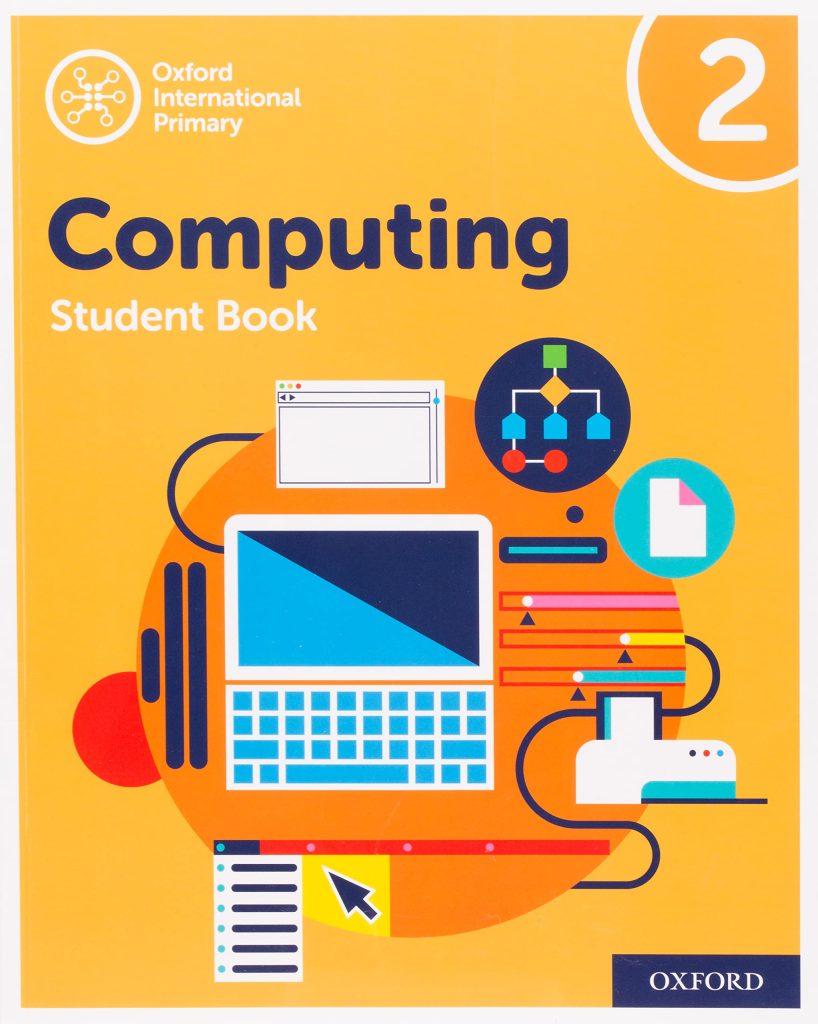
Oxford International Primary Computing Student Book 2 | Free PDF Download
Please share this book
The download button will start your download and show a message from our advertisers in a new window.
Oxford International Primary Computing Student Book 2: An Honest Review
In today’s digital world, giving children a strong foundation in computing isn’t just an advantage—it’s a necessity. The Oxford International Primary Computing Student Book 2 is part of a series designed to introduce young learners to the key concepts of computer science in an engaging and accessible way. This book, specifically for the second stage of learning, aims to build on basic skills and dive deeper into topics like algorithms, coding, and digital citizenship.
I’ve had a chance to look through this book, and I want to share my honest thoughts. Does it provide the right blend of theory and hands-on activities to effectively teach computing to primary students? Let’s take a closer look.
Why Early Computing Skills are More Important Than Ever
Learning computing at a young age helps children develop a range of essential skills. It’s not just about using computers, but about understanding how they work. This includes problem-solving, logical thinking, and creativity—all of which are crucial for success in any field. A well-designed student book can make these complex ideas feel simple and fun, sparking a lifelong interest in technology.
A Deep Dive into the Book’s Content
This book is a fantastic resource for anyone who wants to improve their life. It’s a complete package that provides a structured path to learning the language.
Structured Lessons and Engaging Activities
The book is organized logically, with each unit focusing on a specific grammar topic. It starts with a review of key concepts and then moves on to more complex topics. Each section is filled with activities that help students understand the concepts and apply them in a hands-on way.
Focus on Real-World Application
What sets this book apart is its focus on practical, hands-on activities. It doesn’t just give you a list of words; it provides clear, step-by-step instructions that show you how to use them in a real-life situation. This visual approach is especially helpful for learning nouns and verbs, as you can see them in action.
Who is This Workbook For?
This book is an excellent resource for a wide range of individuals.
Students and Parents
This book is perfect for students in the fourth grade or at a similar level. It’s a great way to introduce them to the world of phonics and help them build a solid foundation.
Teachers and Tutors
For teachers, this book provides a complete and well-structured curriculum. For parents, it’s a great way to give your child an extra challenge or to help them with their homework.
Pros and Cons of the Workbook
Pros:
Comprehensive: It covers a huge range of topics and words.
Practical: The vocabulary is useful for real-life situations.
Structured: The thematic organization is great for memorization.
Cons:
Not a Standalone Resource: This book is for vocabulary, not for learning grammar or conversation skills from scratch.
Can Be Repetitive: For some students, the repetitive nature of the exercises might feel a bit monotonous.
How to Use This Book Effectively
Work Through the Sections: The book is designed to be used unit by unit. Follow the chapters in order to get the most benefit.
Create Your Own Sentences: After you learn a new set of words, try to write your own sentences or short paragraphs using the new vocabulary to make it stick.
Combine with Other Resources: Use this book for vocabulary, but combine it with other resources to practice your listening and speaking skills.

After Post template 2
After Post template 1
After Post template 2

